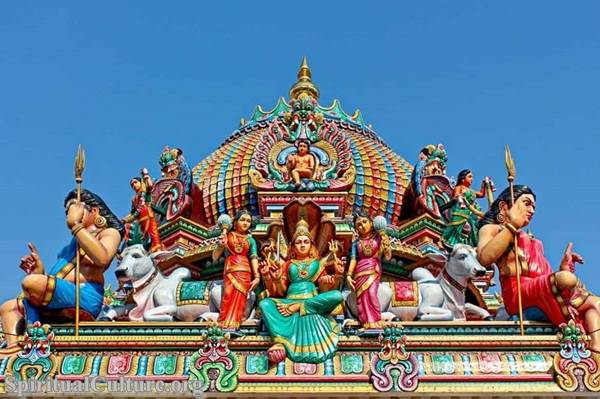They may also worship at shrines or sacred sites or participate in rituals and ceremonies in these locations. Some Hindus also worship in mandirs, which are small temples or shrine rooms found in homes or businesses.
Hindus have a rich tradition of worship that is practiced in a variety of settings. Temples, or mandirs, are considered one of the most important places of worship for Hindus. These are dedicated spaces where Hindu deities are enshrined and worshipped. They can range in size from small shrines to large, ornate structures. Temples are typically built facing east and are often adorned with intricate carvings, statues, and other decorative elements.

In addition to temples, many Hindus also worship in their homes. They may have a small shrine or altar where they offer prayers and perform daily rituals. These shrines can be as simple as a small shelf with statues or images of deities or as elaborate as a dedicated room in the home.
Outdoor spaces such as rivers, lakes, and forests are also considered sacred by many Hindus. They may perform rituals or ceremonies in these locations or visit them for pilgrimage.
Hindus also worship at shrines and sacred sites, which can include natural features such as hills, caves, and waterfalls or man-made structures such as tombs and monuments. These shrines are often associated with a particular deity or saint and are considered to be powerful places of spiritual energy.
In recent years, Hindu worship is also held in mandirs, small temples, or shrine rooms found in homes or businesses. These mandirs are used for daily prayers and rituals as well as for special occasions such as festivals and ceremonies.
Overall, Hindu worship is a diverse and dynamic practice that can take place in a wide range of settings, each with its own unique significance and significance.


